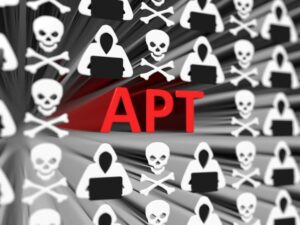Patrick Stewart reprises his well-known role as Jean-Luc Picard in the new show, named after the character. Here are some key takeaways.

Image: CBS
It’s an open secret among Star Trek fans that the Picard character changes. Between the television show, the movies, and now the show that bears his name, Picard changes from peacemaking collaborative leader to warrior to now something more like a Sherlock Holmes of the 24th century. Instead of a noble hero leading a team, the Picard of the new series, along with the audience at home, is trying to answer some questions, including “What the heck is happening here and what is the next move?”
He doesn’t always make the right one.
Seeing those mistakes, in seeing Picard as a human, allows us to grapple with our own humanity. It’s a different side of Picard from what we saw in the series; instead of perfection, we see a man trying to stay in the game at an age that many would go off to the retirement home. Let’s learn from it, with minimal minor spoilers.
SEE: Accomplishment tracker (TechRepublic Premium)
Call your shots
The show opens with Picard having a sit-down interview about the supernova that destroyed the Romulan civilization, how Picard tried to organize a rescue effort, and how a local disturbance on Mars caused the Federation to abandon the effort. The interviewer badgers Picard on why he left Starfleet and he explodes, criticizing the decision to withdraw from the rescue effort. While it might make for a great interview, it reversed what Picard had done when he retired, which was to disagree privately and retire quietly.
In choosing to make his criticism public, Picard saw no benefit and only created enemies.
There is a certain sweetness to being an individual. You can get together with your buddies and talk about the boss. If you are good enough, and the company culture is positive, your attitude might be tolerated, and even considered entertaining.
John Kilgallon, a retired US Army colonel who taught me as a cadet, once explained that something changes when you become a leader. At that point, you have to make the crucial choice to support decisions made above. Otherwise, when you join in with the rabble, you are teaching them to do the same. Critique your leaders and you can expect the followers to do the same.
Or you can quit, which is what Picard did. By criticizing Starfleet publicly, he burned a bridge and should expect opposition from them in the future.
Two episodes later, Picard needs the help of Starfleet.
You are not special
Convinced that Dr. Bruce Maddox is creating a new, organic synthetic like Mr. Data, Picard organizes a meeting with the commander in chief of Starfleet. He believes that Maddox may be the key to recovering some part of Data, who gave his life at the end of Star Trek: Nemesis. Picard asks to be temporarily re-instated and for a ship to go get Dr. Maddox. It isn’t clear that he has any idea where he would go with the ship or that he has more than a hunch.
This meeting does not go well, including choice lines like “There is no peril here; only the pitiable delusions of a once great man desperate to matter.”
In technology, we complain about politics, but we shouldn’t expect to insult people one day and get massive favors the next. Learn to build alliances, create coalitions, be trustworthy, and support your friends–or you won’t have very many.
My fellow fan Brian Gerhardt pointed out this is a low point for Picard. Once the Captain of the most prestigious ship in the fleet, he could command respect simply by walking in the room. Now he has no flagship, no rank, no presence. All he took for granted was stripped away and we see what it is like for a man to have to rebuild it all to accomplish a mission no one else even saw as important.
Beware the dehumanizing
The show begins with Starfleet “othering” synthetic robots and Romulans. Both groups are “thems” that are allowed to die for “us” or “we.” Picard is on the losing side of this with Mr. Data, his old friend, and the few Romulans he was able to get off their planet before the supernova.
In Jerry Harvey’s book The Abilene Paradox, the author points out that separating people into groups and deciding one excluded group must suffer for the success of “us” and “we” is a route to all kinds of evil–the internment of the Japanese during World War II or the Native Americans earlier in our history might spring to mind.
Yet, we seldom consider the corporate boardroom where the company has to move operations offshore, which is code for layoffs. Have you noticed that no one ever lays themselves off? For some reason the decision makers are always part of the “we.”
Admiral Clancy doesn’t turn Picard down because of what he did. It certainly didn’t help, but in the end, she turns him down because she thinks androids and Romulans don’t matter.
It’s not always about you
Picard actually has a prequel short, told from the perspective of two children, called Children of Mars. In that story, two girls have parents that work on Mars and conflict with each other in a preparatory academy on Earth. The problem is not the other girl; it is sadness and disappointment in missing their parents for months or years at a time. The death of their parents in the Mars attack causes the two to create a friendship.
Next time someone attacks you, consider the possibility they have a dying relative, a financial problem, or just someone else attacking them. Star Trek has always been about idealism and hope. Perhaps that idealism can also include grace, understanding, and forgiveness.
Picard, the Short Treks, all the television shows (including the animated show and most of the movies) are available on CBS All Access, which has a free one-month trial subscription. Or take the seven-day CBS trial on Amazon and binge it faster. Either way, the new tribbles short alone is worth it.
Also see
Source of Article




